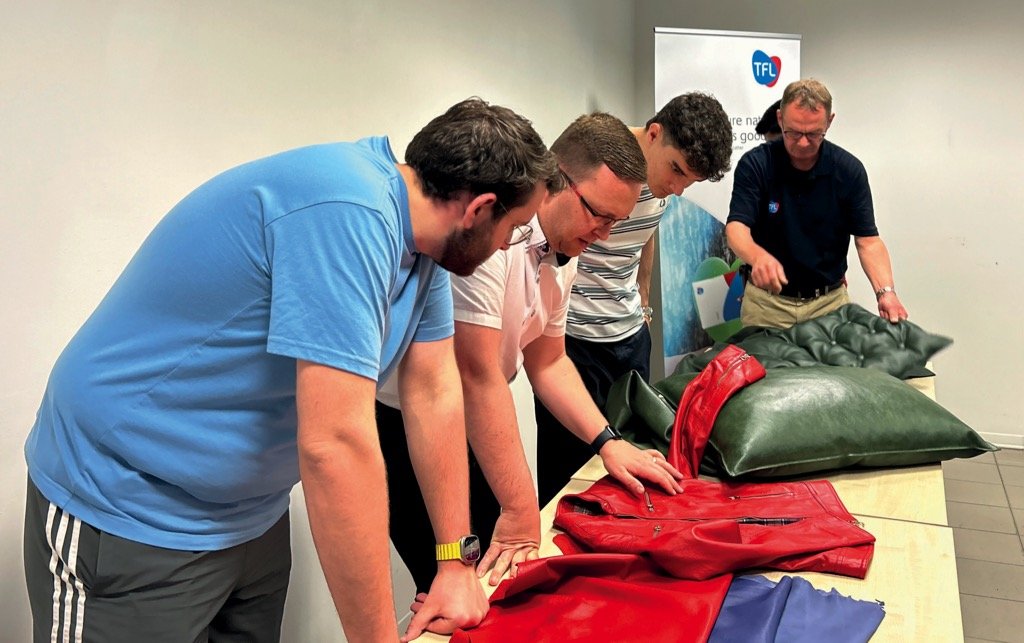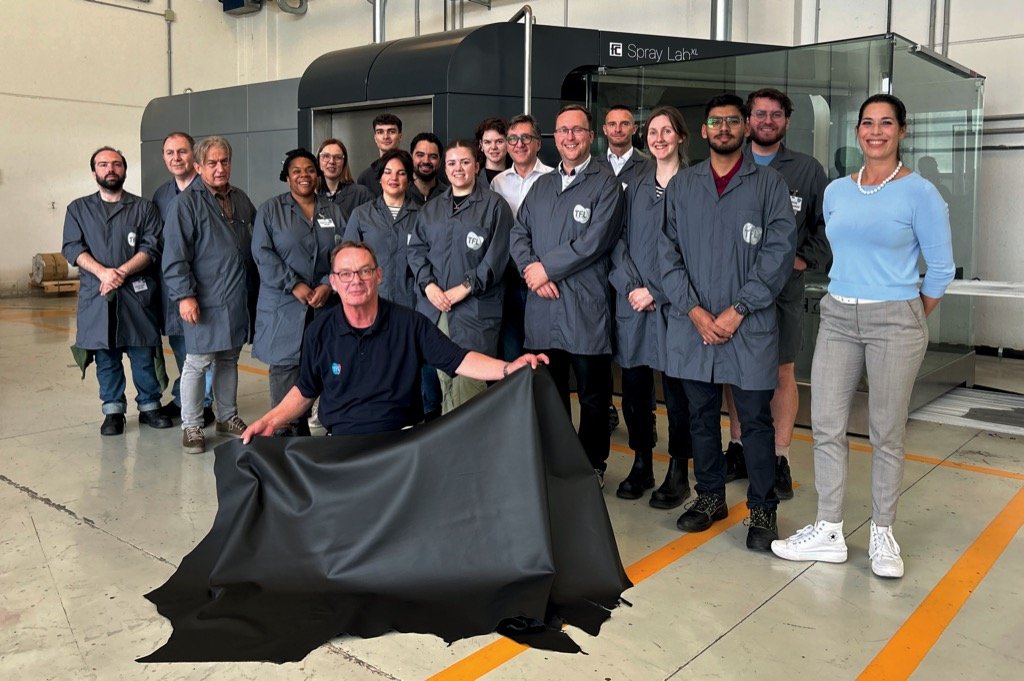Professor William Wise, professor at the University of Northampton and president of the British Tanning Chemistry Association, speaks about the reality of the British university and the collaboration with TFL, which he believes is very formative for students’ growth
The delegation from the English University of Northampton, which completed a week’s internship at the TFL headquarters in Montebello Vicentino, was led by Professor William Wise, who came to the Veneto leather district together with a colleague from the same university, Professor Marc Gummer. In addition to being a teacher, Wise is also president of the SLTC (Society of Leather Technologists and Chemists), corresponding to the Italian Association of Leather Chemists (AICC), which operates in our country.
“The Northampton University – explains Professor Wise – is one of the few across Europe that can count on a specific section of the tanning sector. Normally, we have always had around sixty students, divided into three classes made up of 20 students, who attend two academic years and then a third, the master. After Brexit and Covid, enrolments dropped, so we will evaluate how to proceed in future years according to the admissions.”
This internship in the Vicenza company is essential for the professional growth of the British university students. “For us, the value of discussing with each other in Italy, in particular in one of the most developed and important tanning districts in the world, is very important, we are in a unique territory in the world for the level and concentration of chemical, tanning and technology companies, technicians and employees related to these sectors. Coming here means getting to know different companies that also operate internationally and export all over the world. For us this is an important enrichment, that is why we are grateful to TFL with whom we have been carrying on this collaboration for decades.”
Wise confirms that some of Northampton’s graduates come to work in Italian companies, as well as in other countries, and that the university itself has for years hosted non-British students who, after achieving their qualifications, return to their hometowns, with a safe workplace. A “double track” that witnesses the value of the university path. “I am the teacher – Professor Wise mocks himself – I do my job. I’m a researcher and also an educator, so it is essential that this knowledge, which has to be as wide as possible, is passed down to the youngsters. When we deal with industries and prestigious international groups, as in the case with TFL, a wealth of technology, know-how and style is conveyed: a set of open knowledge, where the different processes are explained. This is what students need to take this home and make it their own.”
Staying up-to-date with the industry’s constantly evolving regulations is crucial to the position he holds as president of the British Tanning Chemical Association, which, William Wise explains, “ holds among its various roles, that of transmitting knowledge of tanning technology and also being a promoter with regard to all relevant regulations. In particular, the implementation and spreading of the new directives at the international level, which we activate in partnership with IULTCS, the European and world association of the sector, is decisive: obviously we do not deal with the regulations themselves, our task is to support tanneries. When a new regulation emerges, because of our experience in the chemical industry but especially because a good portion of the members of this association are within the university, we have the expertise to give advice and to explain to tanners what the impact of a given regulation means.”
The close partnership between the two bodies is crucial. “As a matter of fact, the analysis and related regulation – concludes the professor – is not managed by the association, but by the university itself, which boasts a structure for carrying out tests and managing this type of requests. There are various ways in which we can proceed: in some cases, the research linked to regulations is developed within our university, but there are other situations, such as the issue of Chromium (VI): we investigated, analyzed the test method and validity has been verified. Sometimes we also look at what the law says, perhaps discussing it, therefore opening a discussion. In additional situations, as in the case of bisphenols, help is requested from chemical companies: for example, if a particular substance is banned, we get to determine what can be done to replace it and choose a solution to solve a possible problem.”

Professor William Wise, in the middle among students, giving a lesson at TFL headquarters in Montebello Vicentino

